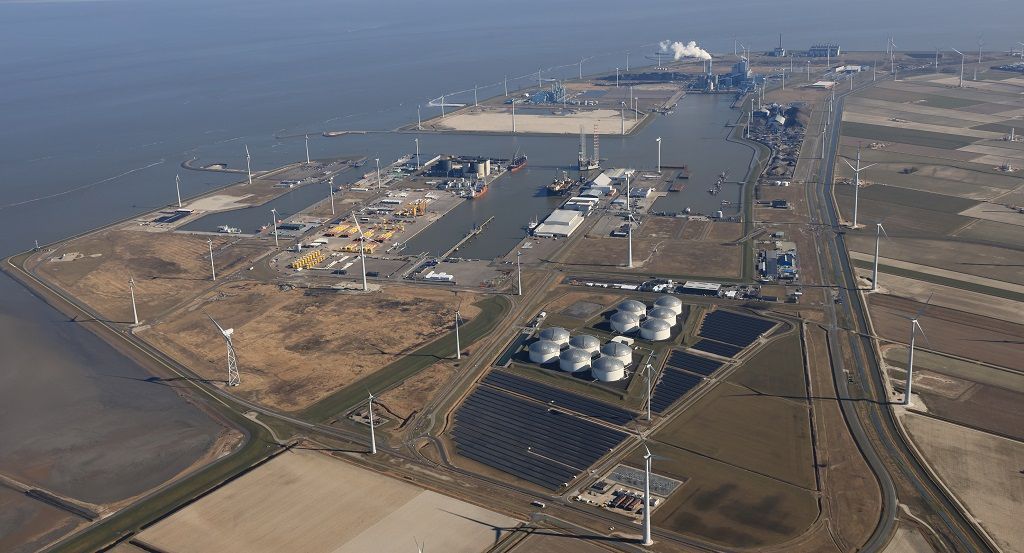Dutch gas grid operator Gasunie is looking to build the country’s second LNG import facility and boost capacity at the Gate terminal, as part of plans to reduce reliance on Russian gas.
The Dutch government said on Monday it was taking steps to reduce the country’s dependence on gas supplies from Russia “as soon as possible”.
In that regard, state-owned Gasunie is working with the Dutch cabinet on boosting the country’s LNG import capacity in the short term.
Gasunie said in a statement it would look into the possibility of installing a floating LNG terminal in the Eemshaven port, operated by Groningen Seaports. The facility would have a capacity of about 4 bcm.
The firm did not reveal more details about the project. It could include a floating storage and regasification unit (FSRU).
This is not the first time for the Eemshaven port to be mentioned as a potential home to a new LNG import facility.
Back in 2007, Gasunie and Vopak, the partners in the Gate terminal, joined forces with Essent to develop an onshore facility with up to 12 bcm capacity per year in the port.
However, the partners dropped these plans later in 2010.
Dutch LNG import capacity could double
Besides this floating Eemshaven terminal, Gasunie also plans to expand the capacity of the existing Gate terminal in Rotterdam by about 5-8 bcm.
Launched in September 2011, the terminal currently has an annual throughput capacity of 12 bcm of gas per year, but it will boost it to 13.5 bcm from 2024 as part of a deal with Germany’s Uniper.
With the new LNG facility in Eemshaven and the expansion of Gate, the LNG capacity in the Netherlands could double from 12 bcm to 24 bcm, Gasunie said.
Gasunie hopes to announce more details about these developments in “the near future”, the firm said.
This move follows a recent announcement regarding the Brunsbuettel LNG import terminal in Germany.
Gasunie is joining forces with the German government but also RWE to build the LNG import terminal as the country looks to reduce reliance on Russian gas as well.
Also, the Dutch firm would operate the LNG terminal and it plans to start building the plant with an annual capacity of 8 bcm this year.

